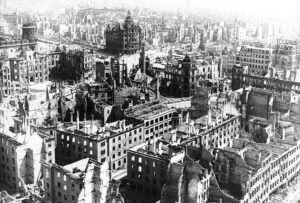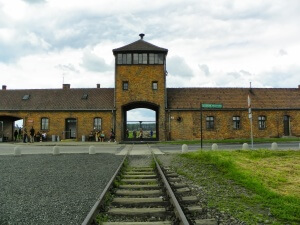Several years ago I had a car accident. Until that point I had enjoyed driving because it gave me the sense of freedom and independence I now get from cycling. Prior to the accident, I drove a white Lambretta scooter which I loved despite falling off in the Pennine winters and being knocked to the ground by a motorist who didn’t see me. I then bought a Reliant Robin in a cheery custard yellow.
Chris McKenna’s photo of Racing-Reliant-Robins in Mendips Race. I did not take part!
Perhaps because one of my sisters was a passenger in the accident and my immediate concern was that she was dead, perhaps because the lorry driver didn’t see me ( a recurring theme, I fear), perhaps because I received burns to my right arm and leg and suffered a hole in my knee, this time I was affected. I lost confidence driving, was ashamed about that, and didn’t bounce back as I had done previously.
As I grew older, I began to see the accident less as personal weakness and more as a form of Post-Traumatic-Stress though I hesitate to use such dramatic terms. More recently I tried to write a poem about the experience though it didn’t quite describe what happened, so when I saw on online course, Please No More Poetry: Post memory and Historical Trauma’ I enrolled. I was very much aware that my trauma was minute in comparison to what we commonly regard as traumatic: wars, violence committed on individuals and the horror of what might be called ‘Acts of God’- volcanic eruptions, floods and the like.
The course was run by the Poetry School, led by Anna Veprinska and included five sessions with input provided by Anna. Each week we were given the task of writing a poem based on the material. During the following week we read the poems written by course members in preparation for an online ‘chat’. They were essentially our first drafts. The material, the tutor and the other students combined to provide me with an interesting and satisfying course.
The idea for the course arose from Anna’s discussion with her PhD tutor who commented that many people respond to trauma by writing a poem about it. Apparently so many did so after 9/11 that the request was made – Please, No more poetry.
At the core of my novel, A Time for Peace, is the concept of trauma. Soldiers like Stefan, Rajko and Mikaiho experienced personal traumas and what has become known as collective trauma- that which affects groups or generations of people.
If an individual can’t assimilate a negative experience into her day-to-day life, what happens to a country traumatised by war? Often we focus on whether we won or lost rather than how our identity as a nation was damaged by the effects of war. Without recognising that as a starting point, how can we as a country start to repair the damage?
90% of Dresden was destroyed by bombing in WW2.
According to Cathy Caruth, ‘Psychic trauma involves intense personal suffering, but it also involves the recognition of realities that most of us have not begun to face.’
Trauma is complex. What hit me, in addition to the lorry, was the fact that I could be wiped out in an instant. My response was to avoid driving near lorries, missing the point that in fact I had no/ have no control as to how and when I will die. What I did in the aftermath, was to return to work immediately and try to put the incident to the back of my mind, despite flashbacks and panic attacks. The early drafts of my poem about it, were one way of facing it but even then I glossed over the horror of the moment.
In A Time for Peace, all four male combatants embodied the fear that unexplored historical trauma may bring. When the Serb government ordered the Retreat in November 1915, it included boys aged 13 – 17 because in the past youngsters of that age had been killed or captured. They feared history repeating itself. Later, as we know, the Serbs repeated history themselves.
One of the fascinating topics on the course was ‘Post Memory’ whereby one generation passes on its trauma to the next. We looked particularly at ‘Leaving you’, a poem by Lily Brett. Her mother and father lived in Nazi occupied Poland for five years before being imprisoned in Auschwitz. They both survived, having witnessed the deaths of parents, other relatives and friends. Lily’s mother spoke vividly and movingly about the trauma so much that Lily described in the poem and other writings how her mother’s experience had become her own.
My granddad who served in France during WW1, spoke little of it. His silence and those of men like him, is now being given a voice. Similarly for WW2. There’s much my parents didn’t say about the bombing of Hull where they and their families lived. They didn’t talk about the deaths of friends and so many people they must have known who were killed. Gradually, the trauma is being examined in literature, film and poetry. We are moving away from interpreting wars in terms of ‘goodies’ and ‘baddies’.
Craiglockhart War Hospital, Edinburgh which was used in WW1 for British officers who were suffering from shell shock
The final session of the course focussed on how we might link current traumas to historic traumas. This I found hard to grasp. We read W.H. Auden’s ‘September 1st 1939’ which read today has resonances of 9/11. I’m not good at grasping swathes of history or events like the war in Syria or Iraq, or the famine in Yemen. Much though I would have preferred to write a poem like that of Auden, I chose to focus a single child who died of starvation in the Yemen. I depended on research but needed to be sensitive. I was unable to write as either his father or his mother though I tried to imagine how they might feel.
I learned a lot. Learned it’s worthwhile to attempt to write a poem about trauma whether it’s personal or global if only to go beyond the bearable experience and explore a little more. There are daily traumas behind momentary headlines and I found by writing I was better able to identify with someone else’s horror, however briefly.
References:
Cathy Caruth: Unclaimed Experience: Trauma, Narrative and History
Pat Barker’s Trilogy: Regeneration
Lily Brett: Leaving you. It is worth reading her biographical details
All the images except the one immediately above were taken from Wikipedia with permission
My thanks to The Poetry School, Anna Veprinska and other students on the online course: Please, No More Poetry (November 2018)





Recent Comments